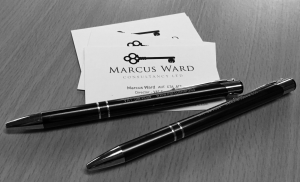A benefit to charities?
In the case of Sveda (C-126/14) which was recently heard by the European Court of Justice (ECJ) the issue was whether input tax was recoverable on the construction of a recreational woodland path which ended at a shop that Sveda owned and made taxable supplies from. Full case here
90% of the construction costs were met by Grant received from the Lithuanian Ministry of Agriculture on the condition that the path was made available free of charge to the public for a period of five years. There was no dispute that the grant was outside the scope income for Sveda.
The authorities disallowed the VAT claimed on 100% of the costs on the grounds there was no link to taxable supplies since free access is a non-economic activity because there was no consideration paid to use the path. Alternatively, there was a contention that only 10% of the VAT should be reclaimed, since the company only met 10% of the cost.
Sveda argued that, although the path could be used free of charge, the purpose was increase taxable sales from its shop (food, drink and souvenirs). This meant there was a link between the VAT incurred and its economic activity as a whole.
The ECJ rejected the view that the input tax should be blocked in its entirety or in part. Its view was that the expenditure was incurred with the intention of carrying out an economic taxable activity, even if there was no direct link to any one specific supply and use of the path was free. The VAT was overhead VAT. No exempt supplies (that would break the chain of deduction) took place.
So, although the path was used for a non-business activity (free access) the ECJ deemed that the input tax incurred on the costs of building the path was deductible. As there was a link to economic activities the VAT is treated as overhead and, in this case, fully recoverable.
Although Sveda is a commercial company and the decision will no doubt be of assistance to commercial entities, there may be a significant impact on charities and NFP organisations. This judgment highlights the basic right to deduct VAT where a link to taxable supplies made by a taxable person can be demonstrated. It does not matter whether the link is to one taxable supply or to all the taxable economic activities. The non-business use of the asset did not prevent recovery. The outcome would no doubt have been different if Sveda was only involved in building the path and just providing free access to it without also selling items form the shop.
On a personal note, this case has echoes of one I took to Tribunal for The Imperial War Museum – with a similar successful outcome. HMRC views here
Let’s hope it will be just as useful for the taxpayer as the landmark IWM decision.
If you think you, or a charity you are aware of, or a client of yours may be affected by this decision, please contact me. This may be the case if the charity undertakes both business and non-activities. I would always counsel that a charity should have its activities reviewed from a VAT perspective. There are usually savings that could be made.
More on our charity services here

